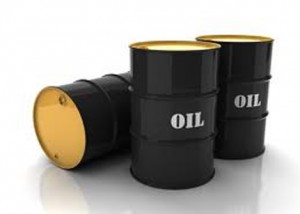Ghana loses GH¢4.7b petroleum revenue due to illegal activities
 Ghana has recorded staggering losses to the tune of GH¢4.7 billion in petroleum revenue due to illegal activities in petroleum distribution between 2015 and 2019 alone.
Ghana has recorded staggering losses to the tune of GH¢4.7 billion in petroleum revenue due to illegal activities in petroleum distribution between 2015 and 2019 alone.
Taxes and levies on petroleum products are major sources of revenue for the government. As at September 2019, Ghana made GH¢3,436.30 million ($668.41 million proceeds from liftings and other petroleum products according to the Ministry of Finance.
In a bid to curb the losses, the National Petroleum Authority (NPA) says it is leveraging technology to improve efficiency and effectiveness in the distribution of products in the Petroleum Downstream Industry.
“Actions, decisions and policies of individuals and corporate bodies which result in petroleum product distribution leakages and the associated revenue losses to the State have serious negative effects on the developmental agenda of the government,” Vice-President, Dr Mahamudu Bawumia said at the launch of a Digital Retail Fuel Monitoring System by the NPA in Accra.
The Fuel Monitoring System is a digitization initiative to create an innovative solution to a major problem in the petroleum industry. It will allow fuel in oil marketing companies’ (OMCs) tanks across the country to be monitored by the NPA.
This will curb illicit activities in petroleum downstream activities such as unauthorised third-party deliveries, fake receipts, smuggling, among others. Under this system, any OMC that receives illegal fuel would be found out, he said.
“With this latest initiative of the Retail Outlet Fuel Monitoring System, we look forward to blocking revenue leakages and improving revenue mobilization that would contribute to government’s efforts to providing social services and funding for infrastructural development,” the Vice-President said.
With a command centre at the NPA’s head office, the Retail Fuel Monitoring System will be able to monitor in real-time online, every fuel sales data from pumps, get station tank fuel levels data and fillings, handle overall wet-stock management and handle complete fuel management.
The system will also be able to manage all fuel-related data in real-time, he indicated.
By Theodora Aidoo
Copyright ©2021 by NewsBridge Africa
All rights reserved. This article or any portion thereof may not be reproduced or used in any manner whatsoever without the express written permission of the publisher except for the use of brief quotations in reviews.

How i wished this initiative was introduced earlier and faulters were persecuted to serve as a lesson. Ghanaians need to hold every leader accountable for any mismanagement.